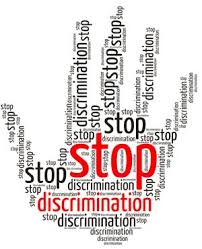 Over the course of the last few months, the number of 911 calls from white people calling to report “suspicious” or unwelcome activities by African-Americans has reached epidemic levels. From Oregon state representative Janelle Bynum was campaigning in her own district, to the two men waiting in a Starbucks, moving a lawn in Ohio, and swimming in a public swimming pool in South Carolina, racism seems to be once again rearing its ugly head in the United States.
Over the course of the last few months, the number of 911 calls from white people calling to report “suspicious” or unwelcome activities by African-Americans has reached epidemic levels. From Oregon state representative Janelle Bynum was campaigning in her own district, to the two men waiting in a Starbucks, moving a lawn in Ohio, and swimming in a public swimming pool in South Carolina, racism seems to be once again rearing its ugly head in the United States.
Outrage is Not Just for the Victims
To be sure, these 911 calls and subsequent responses by members of law enforcement are creating serious outrage among African-Americans all over the country. But at the same time, these frivolous calls are tying up police officers for no other reason than the person being reported is not white. This means the officers are wasting valuable time that could be put to much better use.
While the majority of those making the calls have been found to be white, there are a few calls in which the race of the caller has not been identified. Yet, what really needs to happen first is that dispatchers need more training in how to gather the right information from the person calling in. This includes determining the circumstances surrounding the call and the intent of the person making it. This type of training will help the dispatcher to better determine if the call is an actual emergency or if it is merely a case of a biased complaint.
Officers Need Training Too
Along with training dispatchers to better recognize the situation and relay the appropriate information to the officer being sent to the scene, police officers need training as well. In this particular case, it means learning to recognize the situation, how to react to it, and the best way to deal with each type of situation.
Consider this situation: a group of African-American customers was standing outside of a Chili’s restaurant talking among themselves having just eaten a meal. It was after closing time, and one member of the group commented on the poor service and cold food that had received before they left. The incident was caught on a cellphone video and showed the officers talking to the group.
One officer stated, ” They called me here to prevent an altercation with you guys.” One of the group of men asked, “Why? Why? Because we’re black people in Abbeville it’s an altercation?” Another member of the group asked, “What did we do? All we did is pay and leave.” Voice levels started to increase, but the officer managed to keep calm and work with the group. Eventually, they left, and no arrests were made.
Later Chili’s did put out a statement to the effect that they were sorry about what happened. In Abbeville, this incident has resulted in one major policy change. It states that before a business can contact the police to remove a someone from the premises, they must first ask the person to leave. Officers here are being trained in techniques they can use to defuse such situations when no crime has been committed. This is what it is going to take for the foreseeable future as racism in this country seems to be on the rise once again in large part due to the actions of our current administration. The hard work falls on the officer at street level to try and eradicate prejudice and maintain peace and civility.
